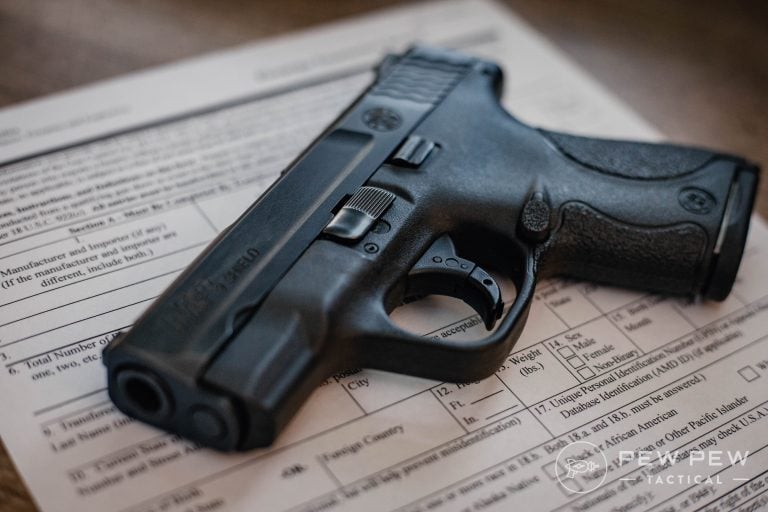

Ever wondered what the Brady Act is? Well, we have the answer. Come find out what this piece of legislation is and how it affects gun owners.
Published April 18, 2022Link copied to clipboard!
We review products independently. When you buy through links on our site, we may earn a commission to help support our testing. Learn more.
JUMP TO SECTION Jump To:
If you’ve been around the gun world for a bit, you might have heard the term “Brady Act” or “Brady Law.” And whether you realize it or not, as a gun owner, you’re impacted by this piece of legislation every time you buy a gun from a gun store.

But what is the Brady Act, and how did it come to be? Most importantly, how does it affect your day-to-day life as a gun owner?
Today, we’re going to talk all about that. We’ll lay out what the Brady Act is and the ramifications of this law.
Read on to find out!
Table of Contents
Disclaimer: While the information provided here is legal in nature, it is not to be construed as legal advice and is for educational and entertainment purposes only.
Trending: Ammo In-Stock, Best AR-15s, Best Concealed Carry GunsThe Brady Handgun Violence Prevention Act, also referred to as the Brady Act or Brady Law, was named after James Brady, the White House Press Secretary under President Reagan.
Brady was struck by one of the rounds fired during the assassination attempt on President Reagan.
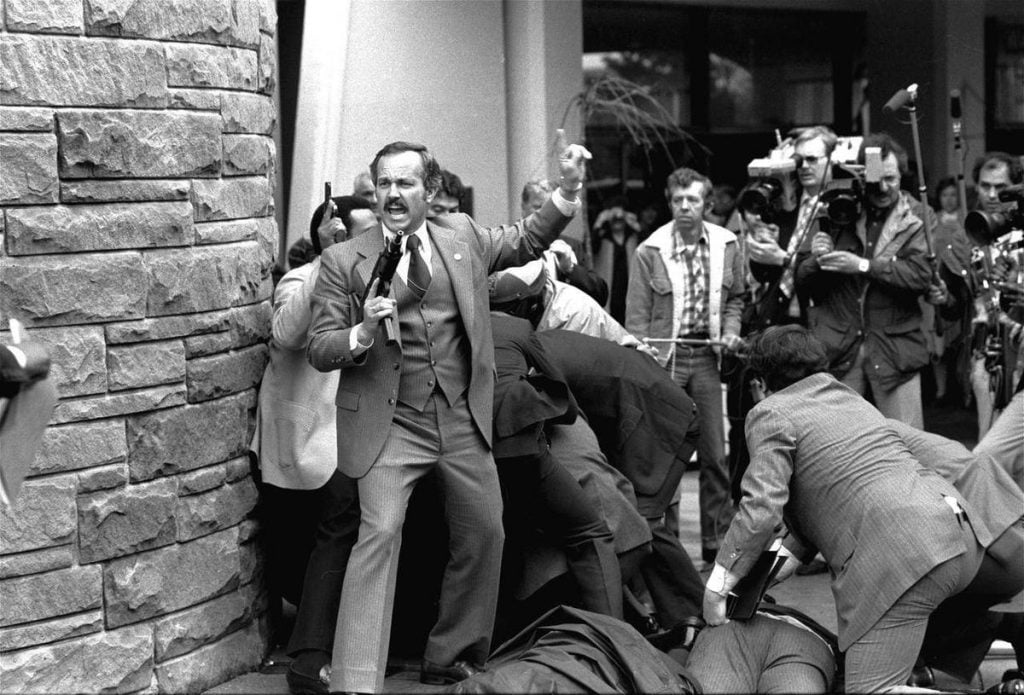
From this event came the push to have federal background checks on individuals trying to purchase firearms, among other requirements.
The bill was signed into law in November 1993 by President Clinton and went into effect in February 1994.
Its main purpose was to implement a federal background check on firearms purchasers in the United States.
The idea was that if the would-be purchaser fell into any of the prohibited categories, they would be denied immediately. This would prevent any future crimes from being committed with the firearm.
Specifically, the Brady Act restricted shipping or transporting any firearm in interstate or foreign commerce, receiving any firearm which has been shipped or transported in interstate or foreign commerce, or possessing any firearm in or affecting commerce by prohibited persons.
So, who are these mysterious prohibited persons? A prohibited person is someone who:
Of course, all of this assumes firearms purchasers are purchasing through legal channels. Backs of sketchy vans parked in alleyways don’t fall under the Brady Act…or any laws, really.
The background checks gun purchasers go through are all the result of the Brady Act.
Of course, today’s background checks are instant checks under the National Instant Criminal Background Check System (NICS). These are performed after gun owners fill out the all-to-familiar Form 4473.
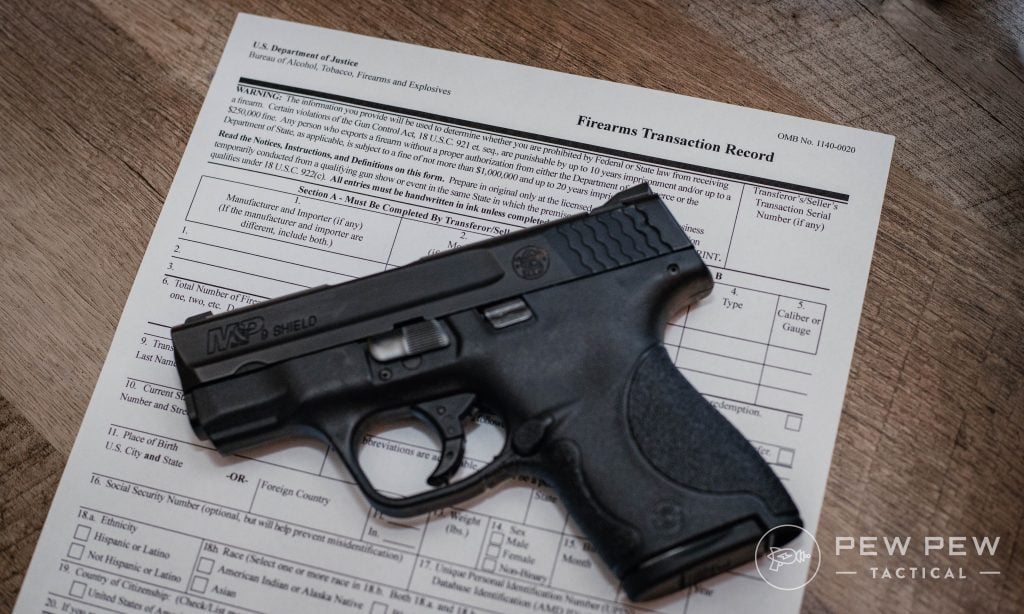
Interesting to note that when the Brady Act was first passed into law, the NICS didn’t exist yet. So, there was a 5-day waiting period on all firearms purchases while waiting for the background check results to come back.
A five-day wait may not seem like a lot to people in places like California, Hawaii, or Illinois – people there are used to waiting a full 10 days before they can pick up their firearms — but in free states, five days is a long time.
The National Rifle Association actually filed a lawsuit against the 5-day waiting period provision in the Brady Act in Printz v. United States. And the case ended up at the U.S. Supreme Court.

In its ruling, the Court found that portion of the law unconstitutional, as it required state law enforcement to perform the background checks, in violation of states’ rights under the 10th Amendment.
Unfortunately, the NRA’s goal of invalidating the entire law didn’t pan out. Only that specific portion of the law was struck down as unconstitutional, while the remainder of the law stayed in place.
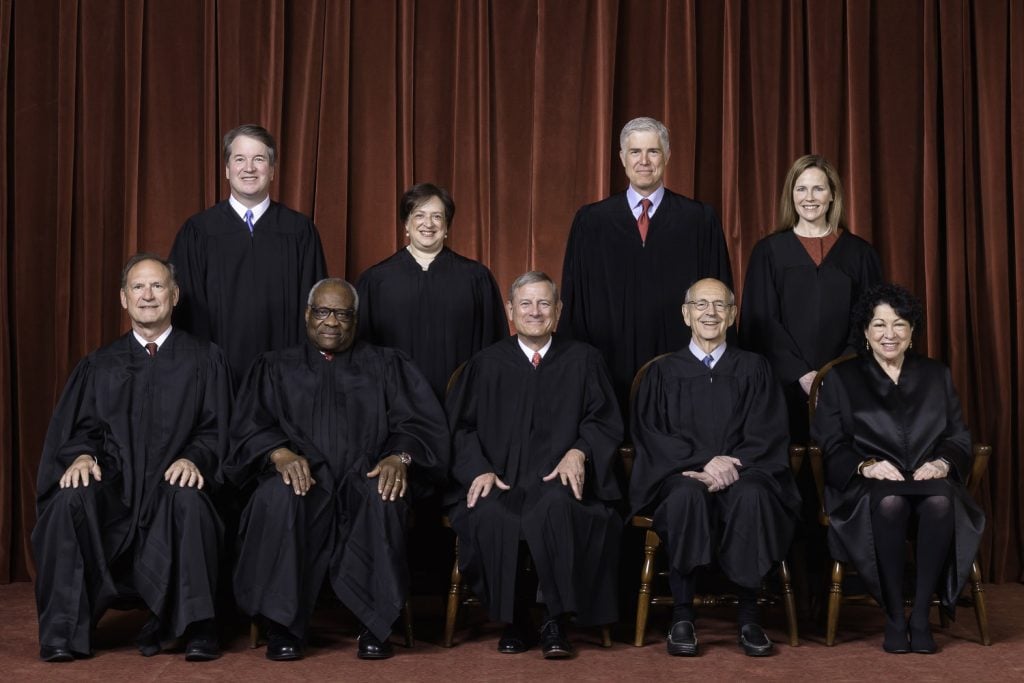
States could choose to conduct the background check or have the government do the check under the Brady Act, with many states voluntarily continuing to perform the background check anyway.
The silver lining of the NRA case was that the 5-day waiting period ended in 1998 when NICS finally came online. With that, the background check became the instant check that we know today, with the federal government performing background checks.
Like all laws, there are exceptions…
The Brady Act does not apply to firearms transfers by private sellers who are “not engaged in the business” of dealing firearms.
In other words, if your buddy wants to sell you his lightly-used Glock so he can fund the purchase of a new gun, no background check is required under the Brady Act.
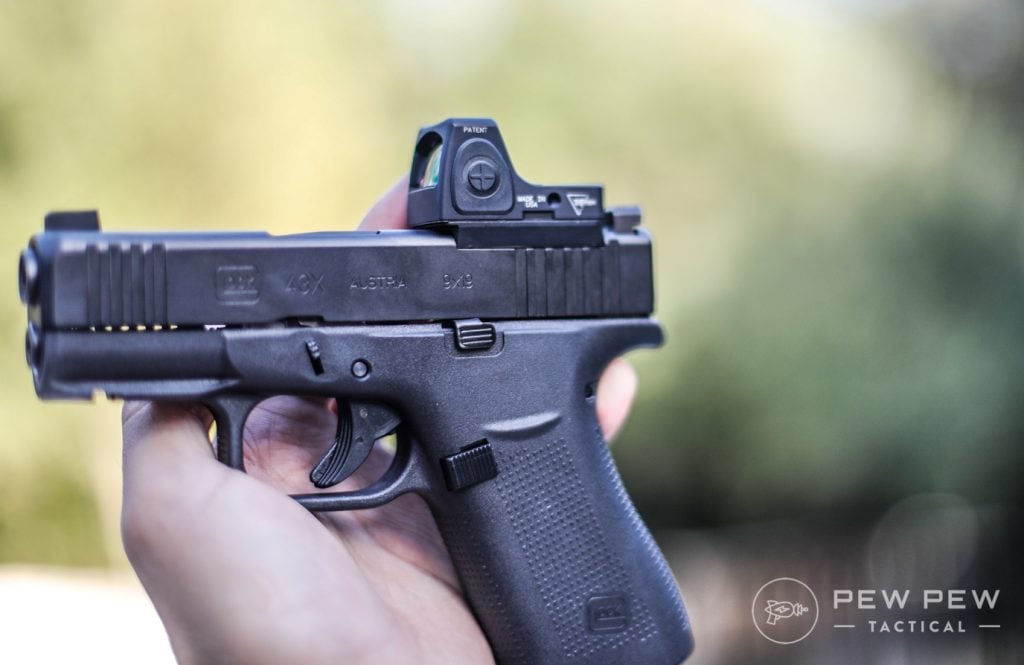
But wait…don’t get too excited…
Some states require all firearms transfers to go through a background check. So, even if there is no requirement under the Brady Act, which is a federal law, selling a firearm in a state like California would require a background check regardless.
Another way to avoid the Brady background check is if the transfer involves curios and relics (C&R).

Similar to private firearms transfers, licensed C&R collectors may purchase C&R firearms from private individuals or firearms dealers without a Brady background check.
As before, any additional state laws regarding background checks would still apply.
And in case you decide to start calling all Gen 3 Glocks curios and relics, there are specific definitions for a firearm to be considered a C&R.
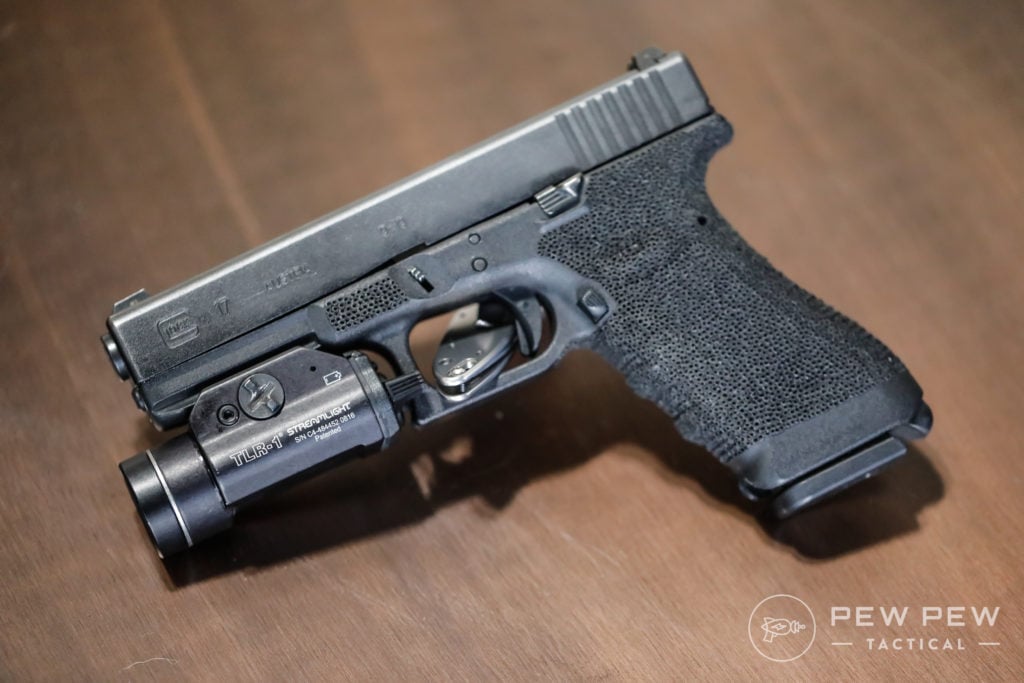
A firearm is considered a C&R if:
At the end of the day, the Brady Act, with the now instant background check under NICS, is a hassle to gun purchasers. But at least, in most states, it’s just a little extra paperwork.
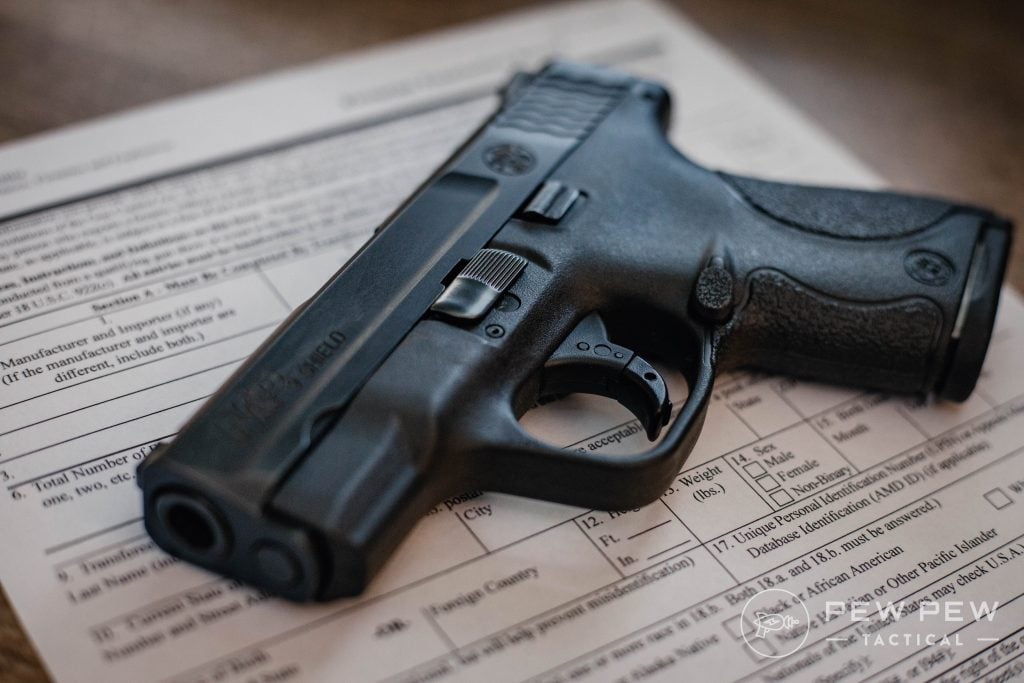
Did you know where the Brady Act originated? Let us know in the comments below. For more on Gun Laws, check out our Law category.